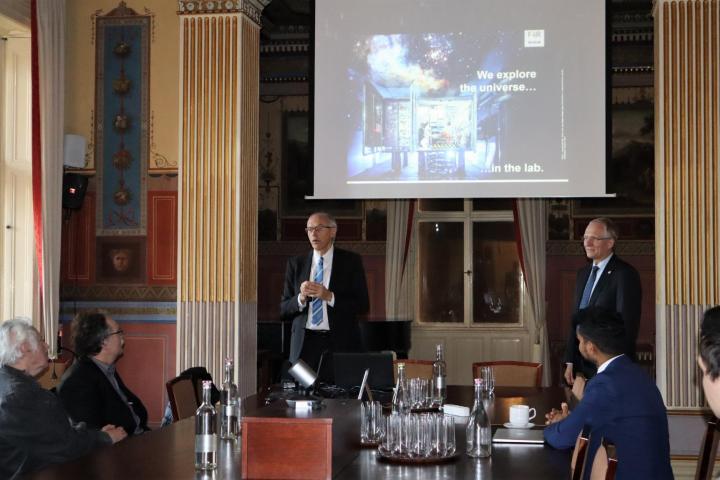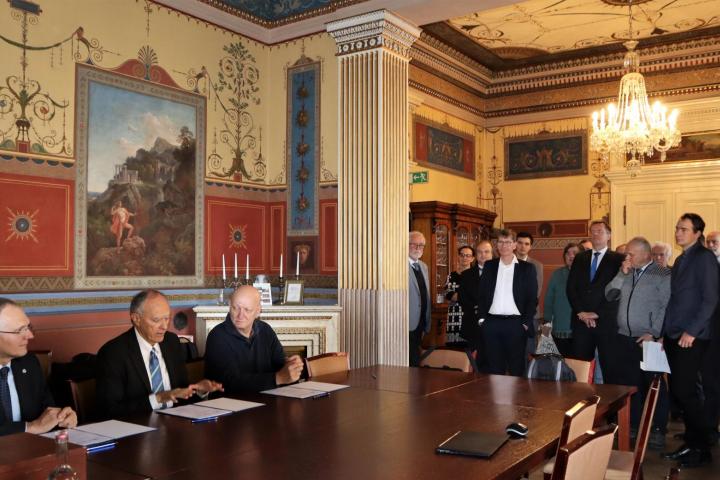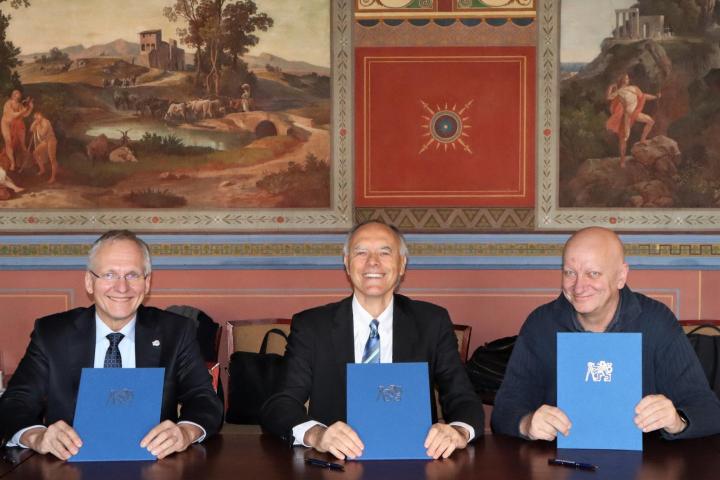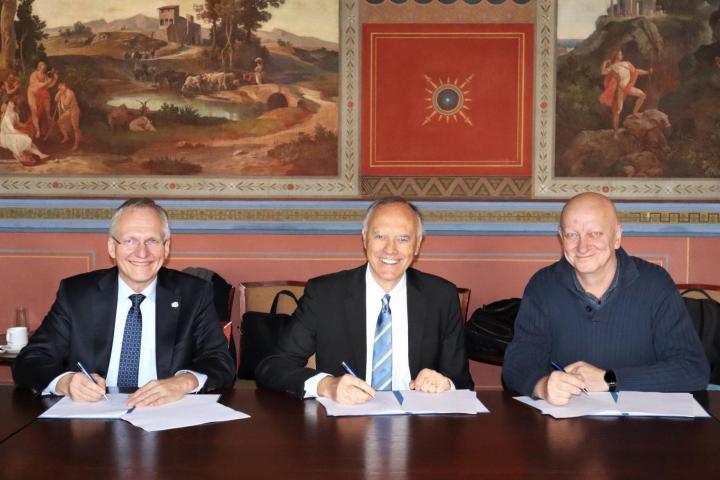"The Czech Republic has an excellent reputation in the field of particle physics in the world, and the scientists and students of CTU in Prague also have their share in it. We participate in research in practically all major scientific projects around the world and we are happy to be part of the ambitious FAIR project practically from the beginning, as the start of operation is planned for 2025," explains doc. Vojtěch Petráček, Rector of CTU in Prague.
The signing of the contract was preceded by a lecture by Prof. Paolo Giubellino and other FAIR representatives at the Faculty of Nuclear Sciences and Physical Engineering (FJFI), where a large part of the Department of Physics is dedicated to the study of particle physics. The students had the opportunity to get first-hand information about the status of the project and at the same time learn how they can already now - during the construction of the FAIR International Laboratory - get involved in the project, either through internships or by working on their diploma or other student or scientific publications.
In addition to CTU, other Czech universities have also signed a cooperation agreement: Charles University and Palacký University in Olomouc. The Institute of Nuclear Physics of the CAS coordinates the cooperation with FAIR.
FAIR accelerator offers training, mentoring and research projects in a wide range of topics from biophysics, materials research including nanomaterials and superconducting magnets, high-performance computing, radiation therapy and protection, accelerator technology, atomic physics, plasma physics, nuclear physics and chemistry.
Czech companies are also involved in the construction of the accelerator and related infrastructure. The total cost of the construction, which started in 2017, is estimated at around €3.1 billion.
The FAIR project will include a total of 3.5 kilometres of tunnels with eight acceleration and collection rings over an area of 20 hectares. The core element is the world's unique SIS100 particle accelerator with a circumference of 1100 metres, which will be up to 17 metres underground in some places. This accelerator has been specially developed to produce - compared to any other facility - incomparably more intense beams of essentially any atomic nuclei. In addition, the primary beams of protons and nuclei will enable secondary beams of antiprotons and unstable nuclei to be produced by collisions with different targets. With their help, it will then be possible, for example, to study the nucleosynthesis processes of heavy nuclei in supernova explosions, or how matter behaves in extreme conditions such as star collisions, or to help answer the question of why there is more matter than antimatter in the Universe.
After its launch, FAIR will be used for scientific work by approximately 3,000 scientists from 53 countries, including the Czech Republic. Experimental collaborations will take place in four main areas, called NUSTAR (Nuclear Structure, Astrophysics and Reactions), CBM (Compressed Baryonic Matter), PANDA (Antiproton Annihilation in Darmstadt) and APPA (Atomic, Plasma Physics and Applications). Data from the experiments will be stored and processed in one of the most energy-efficient computing centres in the world with the Green IT Cube supercomputer.
„Právě vysoká intenzita svazků, a tím pádem i frekvence následných srážek dovolí s nebývalou přesností měřit extrémně řídké procesy, které byly dříve nedostupné. Je zcela na místě očekávat, že toto vědecké zařízení v brzké době značně posune naše znalosti v oblasti částicové a jaderné fyziky a také umožní rozvoj a aplikaci nových technologií,” vysvětluje Petr Chaloupka z Katedry fyziky FJFI.
"It is the high intensity of the beams, and thus the frequency of the subsequent collisions, that allows extremely sparse processes that were previously unavailable to be measured with unprecedented precision. It is quite reasonable to expect that this scientific device will soon significantly advance our knowledge in the field of particle and nuclear physics and also enable the development and application of new technologies," explains Petr Chaloupka from the Department of Physics at the FJFI.
Další informace o FAIR najdete na jeho webu.



